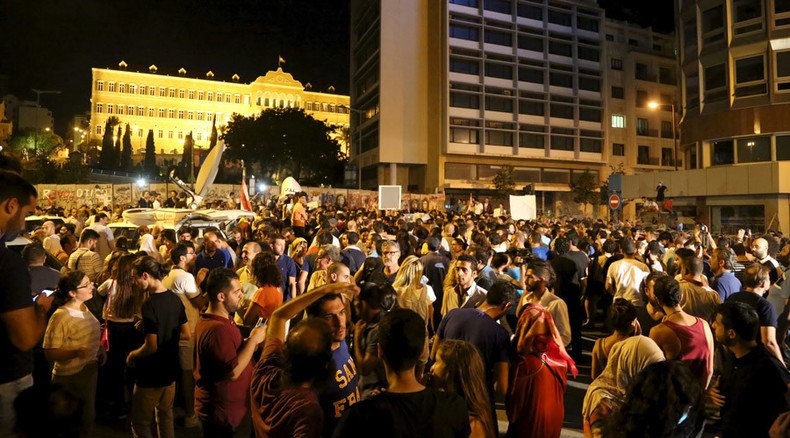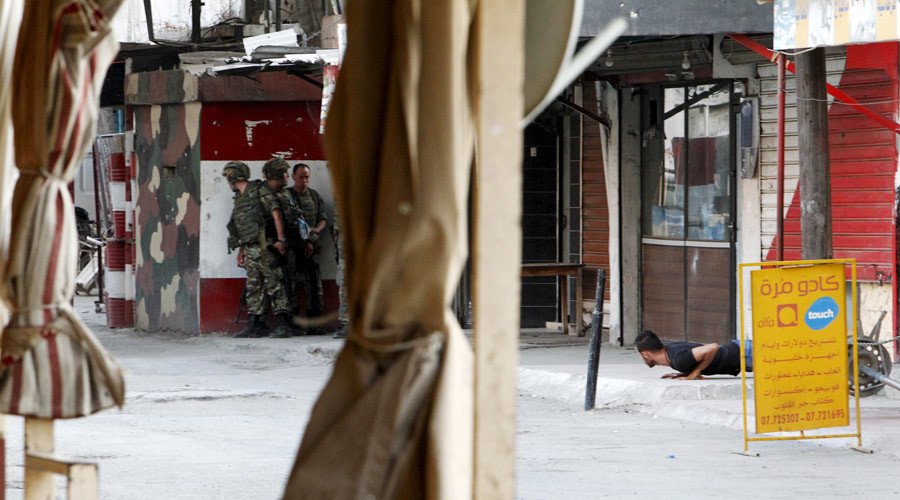‘Outside powers exacerbated religious, ethnic differences in Lebanon’

Ethnic and religious groups in Lebanon have been able to live peacefully together for a long time, according to Richard Becker of the anti-war Answer Coalition. Disputes between them have been ruthlessly exploited by Western states that are trying to control the Middle East country.
RT: Why is it now that we're seeing these violent protests in a country that seemed fairly stable even at the time of the Arab Spring uprisings?
Richard Becker: I think that we can see that there is a great accumulation of frustration among the Lebanese people over a whole range of issues that include water, electricity and services like trash collection. This crisis is rooted in the system that still exists - the system of confessional government, confessional representation that was bequeathed to Lebanon by the French colonizers when they left, a system that really mixed together the elites of some of different communities and at the expense of the people. It is not really a democratic system at all. Of course there is a more progressive wing in Lebanon, but the dominant force in the government really represents the elite and those many billionaires in Lebanon and millionaires as well. People are reacting to what they view as a lack of attention to what their needs are.
RT: It took a rally over the collection of rubbish, just a day to turn into calls for the government to resign. How do you think the situation will look, let's say, in a month?
RB: It is very hard to say. It is in initial stage, and whether it expands into a more broad political demand or set of demands for changes in Lebanon - that remains to be seen. We understand today that the alliance that includes the Hezbollah representatives in the government, the Cabinet of Ministers has resigned. So that is a significant development. In all mass movements or incipient mass movements it remains to be seen whether or not it develops further. There are many problems, many deep crises that Lebanon is facing, including the fact that the Palestinians- there have not been allowed the right of return; that there is an influx of people particularly from Syria and Iraq, from the wars that are the direct result of US intervention in the region, and these problems of the provision of real services to the people. Lebanon is a very small country with very complex problems.

RT: Lebanon has 18 officially recognized religious sects. If the situation gets worse, how likely is it that we will see tensions between them?
RB: That is the way that the ruling elite and also the outside powers, particularly I would say the US, France, the former colonizer, and Israel have exploited and exacerbated the tensions within the country. I believe that left to themselves the Lebanese people are very tolerant people, have been able to work together, to live together for a long time. But these differences and ethnic and religious differences, as I said, have been ruthlessly and relentlessly exploited by those who do not have the interest of Lebanon at heart, but instead trying to control the country.
RT: There is no dictator in Lebanon but a weak state, even if the government steps down, is this likely to bring any real change?
RB: There have been many, many governments over the years and now Lebanon is a year passed the deadline for its presidential election. There are powerful political forces in the country. The US and outside powers have been trying to build up the Lebanese army to be the most powerful armed force in the country. But I think everyone still acknowledges- who follows the situation- that the resistance movement including Hezbollah and other parties, other forces are stronger. It is a very complicated situation, the one that we hope will not turn into another version of the civil war, and there is no reason I believe that that’s about to happen. But that was a great tragedy for the Lebanese people and one that was terribly exacerbated by the outside intervention of the US in Israel.
The statements, views and opinions expressed in this column are solely those of the author and do not necessarily represent those of RT.
LISTEN MORE:
The statements, views and opinions expressed in this column are solely those of the author and do not necessarily represent those of RT.












